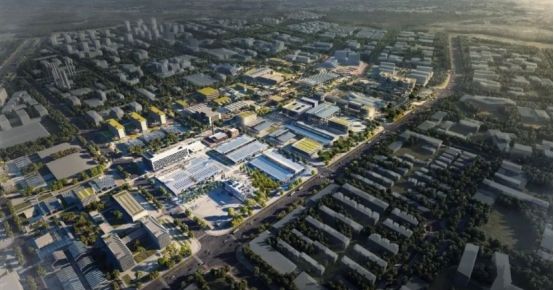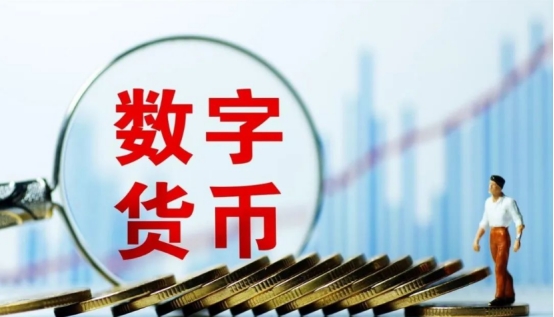
Recently, the first national "Digital Currency + FTZ Smart Park" application scenario construction project was recorded and approved by the People's Bank of China, and landed in Zhangjiawan Design Town in the FTZ of Beijing City Sub-center.
This is also the first regional platform that deeply integrates the application of the central bank's digital currency since the national digital currency pilot work was carried out.

The project is jointly constructed by Tongzhou Development Group, Bank of China Tongzhou Branch and Tiancheng Tonglian Technology Company.
The platform provides a series of digital tools for enterprises in the park, such as intellectual property deposit, enterprise coupon issuance, electronic contract signing and low-carbon behavior record, around the digital service needs of enterprises.
When enterprises use digital tools, they can choose digital currency as a payment method to make payments. The introduction of digital currency effectively reduces the cost of payment and settlement for enterprises in the park using various services, improves the efficiency of business operations and protects data privacy.
According to the relevant person in charge of the construction party, Tiancheng Tonglian Technology Company: the application scenario of the digital currency project mainly includes six aspects.
First, energy saving and environmental protection scenarios. Introducing a personal carbon footprint collection tool, as well as paperless services such as e-contracts, e-payments and e-coupons supported by digital currency, we implement the green development strategy of the sub-center and actively promote the realization of peak carbon dioxide emissions and carbon neutrality.
The second is the commercial supporting scene. Combine digital currency with various self-service terminals and smart restaurants in the park to provide a new digital life experience.
Thirdly, the enterprise empowerment scenario. The park's innovative design of TPM data transaction model combines data cured on the blockchain-based TPM with digital currency to provide a trusted park copyright protection scheme, reducing the cost of intellectual property rights and improving the deposition experience.
Fourth, the digital upgrade scenario of park operation. Introduce digital currency in the park operation service, realize digital contract signing, property fee payment, conference room rental, etc. under the support of digital currency, and improve the park operation and management efficiency.
Fifth, the park visualization scene. The payment data of the digital currency in the park is collected, aggregation and analysis. The visualization is presented to truly reflect the pilot situation of digital currency in the park.
Sixth, it is a non-public party building work scene. In response to the demand for party membership services of non-public enterprises in the park, the park provides a digital currency payment channel for party dues to enhance the flexibility of party dues collection in each enterprise branch.
According to the introduction, the introduction of digital RMB as a new payment means into the smart park is beneficial to the park to improve the efficiency of capital flow and reduce the cost of enterprise capital circulation. In addition, digital currency, as a native digital payment method, is highly open and scalable, and can be organically integrated with various business scenarios in the park, providing a digital grip for park management, bringing new upgrades to the park's consumption experience and improving the overall information level and security of the park.
I'll tell you another good news about the application of digital currency in the urban sub-center.
Beijing City Sub-center accelerates the layout and digital RMB consumption scenario.
In conjunction with the 2021 Beijing Consumer Season, the city has launched a pilot digital RMB campaign called "Jingcai Strivers Digital Carnival". As one of the co-organizers of the event, the Sub-enter will create a new experience of using digital RMB around multi-dimensional scenarios such as dining, entertainment, leisure and government affairs, and accumulate experience for steadily promoting the application of digital currency.
Before this pilot activity, financial institutions within the Sub-center have been actively laying out digital RMB business, increasing the opening of public digital currency accounts in government and business institutions, as well as the promotion and popularization of personal digital currency wallets.
Since this year, Bank of China Tongzhou Branch has taken the lead in setting up digital RMB payment scenarios in the sub-city center. By deploying digital RMB payment devices and upgrading the payment system, it has landed in several scenarios in some hotels, specialty restaurants, retail, superstores, healthcare, property and fitness in the Sub-center, providing digital RMB payment services to more than 1,000 units and nearly 10,000 individuals in total.
ATMs in 19 ICBC branches in the Sub-center have been upgraded and are equipped with two-way currency exchange function.
A number of trendies hitting places such as Canal Cruise Terminal and Yue Qingshan Bookstore have also participated in the pilot activities, and more than 60 merchants have participated in the digital RMB pilot activities through ICBC.
In the future, the Sub-center will also explore the application of digital RMB in scenarios such as government taxation, livelihood payment, digital e-commerce, transportation, public welfare and poverty alleviation, supply chain finance, etc. to help the development of digital economy in the Sub-center with financial technology.